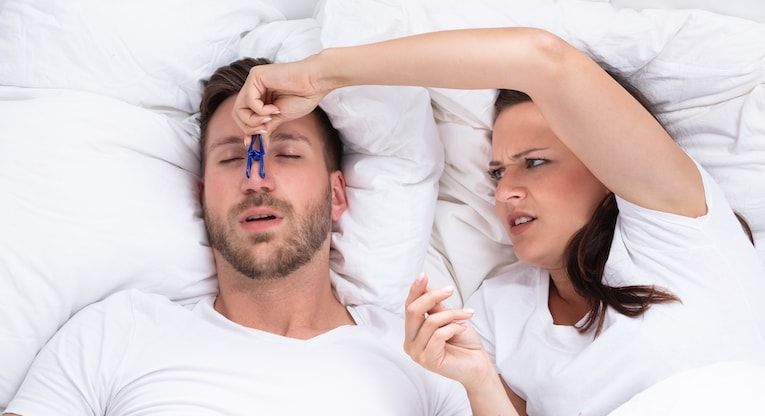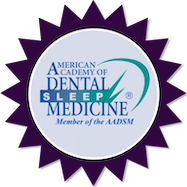Welcome to Fuller Sleep & TMJ Solutions | Greensboro, NC | frontdesk@fullersleep.com
Snoring vs. Sleep Apnea
This is an area that many people get confused. We know there is sleep apnea and then there is snoring. These are the same conditions, right? No. While people who suffer from sleep apnea might snore, that isn’t always the case. There are times when the sleep apnea sufferer does not snore and other times when they do snore. It is important to understand that and the other differences, so we don’t jump into the immediate assumption that someone we love who snores also has sleep apnea.
Before we dive into the differences, let’s first revisit the descriptions for sleep apnea and snoring. Take a look.

What is snoring?
We have seen that about 45% of adults snore at least occasionally. Then there about 25% who are habitual snorers. When you hear that snore sound, it occurs because there is an obstruction to the free flow of air through the passages at the back of the mouth and nose. This is the collapsible part of the airway where the tongue and upper throat meet the soft palate and uvula.
When these structures strike each other and vibrate during breathing, it leads to the rough snoring sound we are all used to hearing on occasion. While snoring can be socially and medically disabling, it is important to address the underlying condition. The social side represents the disruption to your bed partner while the medical side disturbs sleeping and can be a sign of sleep apnea.
What is sleep apnea?
Obstructive sleep apnea is considered a sleep disorder. If someone has sleep apnea, their breathing is briefly and repeatedly interrupted during sleep. When we refer to “apnea” it is the pause in breathing that lasts at least 10 seconds. It also occurs when the muscles in the back of the throat fail to keep the airway open despite efforts to breathe. Some people can wake up without even noticing, hundreds of times a night, adding to the severity of this condition.
What is the difference?
We know that snoring is a common symptom of sleep apnea—that much we can agree on. However, as we mentioned earlier, just because you snore does not mean you also suffer from sleep apnea. The same goes for sleep apnea—you may not snore at all. Regardless of if you snore or have sleep apnea, it is important to seek further medical attention for a proper diagnosis. This can help us provide proper treatment options.
The main difference is that when snoring accompanies sleep apnea, it is joined by pauses in breath. For those seconds, you stop breathing because your airway collapses or is blocked. This can last from a few seconds to minutes, followed by choking, snorting or gasping.
At the end of the day, your health depends on not only how much sleep you are getting, but the quality of the sleep as well. If you or your partner are showing any signs of snoring or sleep apnea, it is important to receive a proper diagnosis—whether it is just snoring or something more serious like obstructive sleep apnea.
We’re here to help. Contact us at Fuller Sleep & TMJ Solutions in Greensboro to learn more about snoring, sleep apnea and how we can help.
Contact Us Today
Our Hours:
Monday: 8am-5pm
Tuesday: 8am-5pm
Wednesday: 8am-5pm
Thursday: 8am-2pm

CONTACT US
Fuller Sleep & TMJ Solutions
1515 West Cornwallis Dr Suite 110 Greensboro, NC 27408
BUSINESS HOURS
Monday: 8am – 5pm
Tuesday: 8am – 5pm
Wednesday: 8am – 5pm
Thursdays: 8am – 2pm
All Rights Reserved | Fuller Sleep & TMJ Solutions
© 2023 All Rights Reserved | Fuller Sleep & TMJ Solutions
Website designed by: Morningdove - Accessibility Statement


